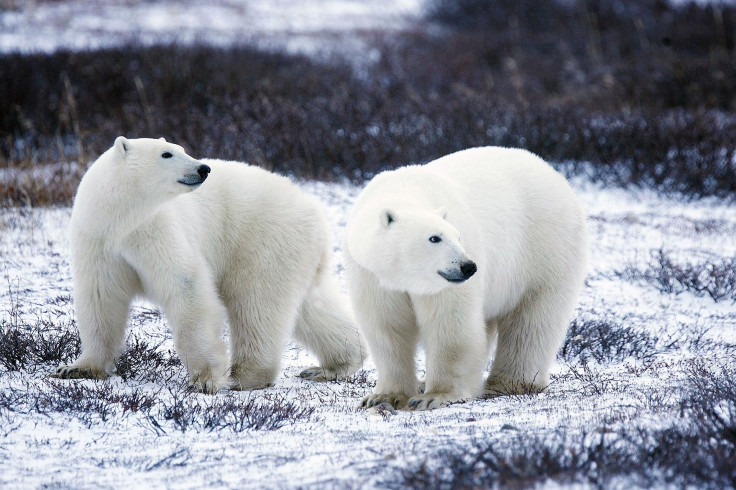Why Cannibalism May Be Increasing Among Polar Bears

KEY POINTS
- Polar bear cannibalism has been increasing in the Arctic
- According to a polar bear expert, this is likely because of a lack of food
- Ice melt as well as human activity may be contirbuting to polar bears' food problems
At a presentation on Wednesday, Feb. 26, Russian scientist and polar bear expert Ilya Mordvintsev noted that the cases of polar bear cannibalism have been increasing, likely because of a lack of food.
According to Mordvintsev, there are some seasons wherein the large males attack females with cubs when there is not enough food and, while such behaviors have been observed before, the once rare cases are now being reported quite often.
Receding Ice
In many areas, polar bears come ashore when the ice melts then wait for the ice to refreeze so they can go hunting again. However, with the receding ice, which polar bears used to use as a platform to hunt for seals, they have less access to traditional prey.
In fact, polar bears have reportedly been moving away from their traditional hunting grounds because of melting ice.
Incidentally, it was only on Tuesday, Feb. 25, when researchers from San Diego Zoo Global noted that shrinking sea ice has been creating an “ecological trap” for polar bears, a scenario wherein rapid environmental change causes an organism settles for a poor quality habitat where conditions are less than ideal.
Historically, polar bears in the Southern Beaufort Sea stay on ice year round. However, a significant percentage of the creatures have opted to stay on land than on the shrinking ice during summer. Based on previous research, the polar bears that stay on land get access to whale carcasses while those that stay on ice end up fasting.
According to the researchers, the polar bears’ decision to stay on ice may be creating an ecological trap that could contribute to their already dwindling numbers.
Human Activity
Mordvintsev also noted that the area where polar bears used to hunt has now become a busy route for ships carrying liquefied natural gas. Unfortunately, this gas extraction also adds to why the ice in the polar bear hunting area has now become broken.
Further, Russia has also upgraded its military presence in the Arctic, adding to human presence in the area.
With the melting sea ice and humans encroaching on their traditional hunting areas, polar bears have essentially been cut off from their traditional food sources. As a result, many polar bears end up malnourished and perhaps having to resort to cannibalism.
Not only that, but it also increases the chances for more human-polar bear interaction, which can be bad news for both the humans and the polar bears.
© Copyright IBTimes 2025. All rights reserved.






















